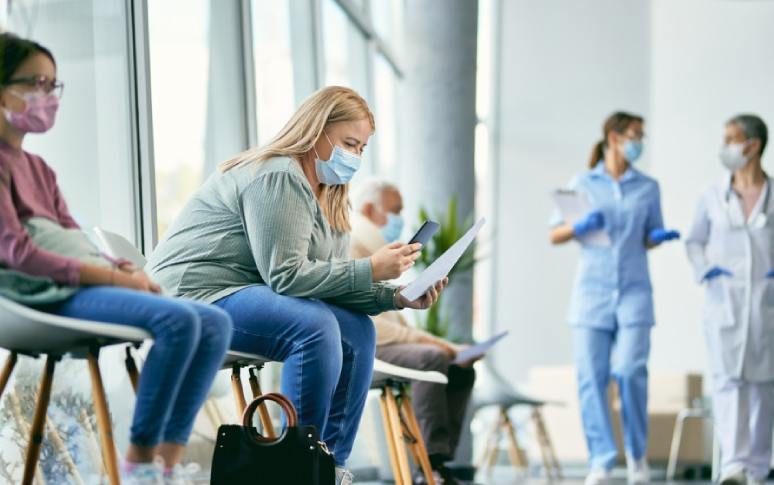1. Know When to Go
Discover essential tips on preparing for urgent care! Whether it's understanding when to go for non-life-threatening emergencies or meticulously following aftercare instructions, this comprehensive guide is designed to equip you thoroughly for a seamless and stress-free urgent care experience.
Urgent care centers are a great option when you find yourself facing a sudden illness or injury that demands prompt attention yet isn't life-threatening enough to warrant a trip to the emergency room. For instance, a sprained ankle that causes significant pain and swelling or a high fever that persists despite home remedies are all situations where urgent care can be the ideal choice. It's absolutely crucial to carefully assess the severity and immediacy of your medical issue. This evaluation process helps you make an informed decision about whether urgent care is the right destination for you.

2. Bring Necessary Items
When heading to urgent care, make sure to bring along your identification, such as a driver's license or passport, and your health insurance card. In addition to these, have a comprehensive list of your current medications, including the dosages and frequencies. This is extremely important as it helps the healthcare providers understand your current treatment regimen and avoid any potential drug interactions.
If you have allergies, especially to medications, it's vital to document them clearly. This information can be a matter of life and death in some cases. Additionally, it's highly advisable to bring any recent medical records or test results that may be relevant to your condition. These can provide valuable insights to the healthcare team and help them make a more accurate diagnosis and treatment plan.

3. Be Prepared to Wait
Although urgent care is generally quicker than the emergency room, it's important to remember that there may still be some waiting time. This is because urgent care centers often deal with a large volume of patients with various medical issues. So, it's a good idea to bring something to keep you occupied during this time, like a book, magazine, or your phone.
Remain patient as the staff is working hard to attend to everyone as quickly as possible. Understand that the priority of the urgent care center is to provide appropriate care to all patients in a timely manner. While waiting, you can take this time to relax and try to stay calm, knowing that you are in good hands and will be seen as soon as possible.

4. Communicate Clearly
When speaking with the healthcare provider, be as precise as possible about your symptoms. Describe when they began, how they have progressed over time, and any relevant medical history. This detailed information is crucial for the provider to make an accurate diagnosis and provide effective treatment.
Don't hesitate to ask questions if you have any doubts or need further clarification. Your healthcare is your responsibility, and asking questions is an important part of ensuring that you understand your condition and the treatment plan. The more open and honest your communication is, the better the outcome of your visit is likely to be.

5. Understand Aftercare Instructions
After your visit to urgent care, pay close attention to the aftercare instructions provided by the healthcare team. These instructions may include information on managing medications, caring for wounds, activity limitations, and recognizing signs that require further medical attention. For example, if you have a wound that needs dressing changes, make sure you understand how often to do this and what materials to use.
Follow these instructions carefully to ensure a smooth recovery and avoid potential complications. Remember, aftercare is just as important as the initial treatment, and following the instructions can make a significant difference in your recovery time and overall health.

6. Plan for Follow-Up
Depending on your condition, a follow-up visit with your primary care physician or a specialist may be recommended. Schedule these appointments in a timely manner to ensure continuous monitoring of your health. The exchange of information between the urgent care center and your ongoing healthcare providers is crucial for coordinated care.
This communication helps ensure that everyone is on the same page regarding your treatment and recovery plan. It also allows for any necessary adjustments to be made based on your progress and any new developments.

7. Conclusion
Preparing for an urgent care visit can truly make a world of difference in ensuring that you receive the appropriate care in a timely and efficient manner. By knowing when to go, bringing the necessary items, being prepared to wait patiently, communicating clearly with the healthcare providers, understanding aftercare instructions, and planning for follow-up, you can make the most of your urgent care experience. Remember, taking these steps is not only important for your immediate health but also for your long-term well-being. So, the next time you find yourself in a situation where urgent care may be needed, be sure to follow these guidelines and take control of your healthcare journey.

Was this page helpful? Give us a thumbs up!





